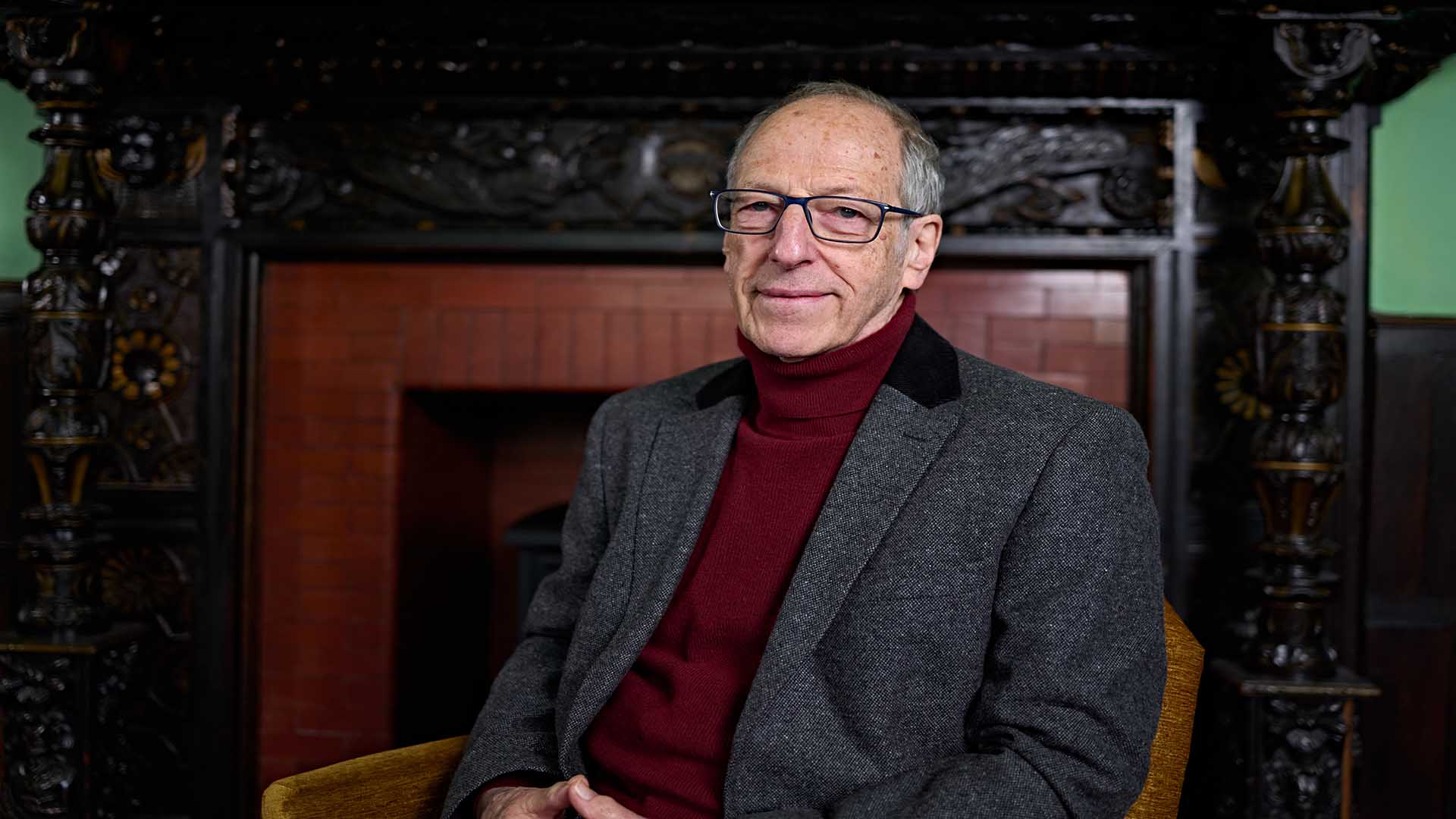
An Interview with Professor David Canter, Creator of Investigative Psychology
Professor David Canter is a renowned psychologist who developed and named the field of Investigative Psychology. David began his career as an architectural psychologist studying the interactions between people and buildings. His work in this area led him to Investigative Psychology, where he worked at numerous universities, publishing academic works and setting up MSc courses in this specialised field of psychology. David worked at the University of Huddersfield between 2009 and 2018. Following his retirement, he is now an Emeritus Professor at the University of Liverpool, where he continues to publish work on Environmental and Investigative Psychology.
Q1) How did you first become involved in crime and investigations?
In 1985, I was approached by police officers from Scotland Yard to help them work on a case where they were trying to find a person who'd committed a series of rapes and murders – walled by journalists ‘the railway rapist’. They approached me because of background work I had that looked at how people escaped buildings that were on fire. I'd been looking at what people did in emergencies, so I'd developed ways of thinking about how people behave in challenging situations. And that's, in a way, what criminals are always doing, so I could apply that to criminals. My contribution to the investigation was helpful. The criminal was caught, so from there, I continued to work with the police.
Q2) What is Investigative Psychology?
Investigative psychology contributes to a) more effective information gathering by the police, through interviewing and detecting deception, b) making inferences about possible offender’s location and where they may be found in police records, from the details they have of cases, which is a scientific development of ‘offender profiling’, and c) supporting police decision-making. Investigative Psychology also develops systems that help the police be more effective in how they carry out their work. To summarise, the three components that make up Investigative Psychology are information, inference, and decision-making – these three aspects are the essence of Investigative Psychology.
Q3) How did you develop Investigative Psychology?
I began to reflect on the work I’d done in the railway rapist case and realised it was a whole new discipline of psychology. There is a wide range of issues that are relevant to police investigations that psychologists can contribute to. I remember it was 1991, by then I’d contributed to a number of police investigations. One day we were trying to come up with a name for the new discipline, so we were writing ideas on a whiteboard. We considered investigational psychology and detective psychology, but I decided that Investigative Psychology was a term that covered the entire range of ways in which psychological science can contribute to investigations. For the discipline to be effective and useful, I understood that we needed to have a particularly good understanding of what police do – it’s no use just having an academic understanding. I continued to develop an in-depth examination of the stages that police go through to solve a case from gathering information and other material to interviewing victims and witnesses, making interferences, and looking at how to support decision-making. Those three stages act as a cycle of collecting the information, making inferences about it, and then supporting the decision-making, which might suggest more information needs to be collected. That cycle continues until the police have enough evidence to take the case to court.

Q4) What’s the difference between Investigative Psychology and Forensic Psychology?
Forensic psychology deals with individuals going into the legal system and Investigative Psychology deals with the entire process of investigations. Forensic psychology initially was psychologists helping the courts to make decisions. If there was somebody who was mentally disturbed, a forensic psychologist would identify if the person could understand what was going on in court and whether this individual was fit to plead. They may also help people deal with their anger, understand their sexual relationships, or help people cope with being in prison. However, in the practice of Investigative Psychology, the police don't necessarily know who the offender is. They may have an offender, or a suspect brought in for questioning, and they want to understand how best to interview that individual. Now, the areas overlap. For instance, if somebody is brought in as a suspect, and they have some sort of mental illness, it may be that a Clinical Psychologist or a Forensic Psychologist may offer advice. It’s also likely that an Investigative Psychologist understands these issues to give guidance or could offer advice on the interview process.
Q5) Can you tell us about your time working with the FBI?
Once the success of my contribution to the police investigation into the railway rapist had happened, and it became international news, I was invited to go and talk to the FBI training place in Quantico in America in 1991. I went to see the leading profilers and give talks to students and the police officers who were training with them. It became clear there was no real systematic scientific background to what they were doing. Of course, they were highly educated individuals with valuable experience, but they didn’t have a systematic basis for what they were doing or a scientific basis at the time. I realised because of that, that what we were doing in Britain was of great significance because we had the opportunity to develop a new research activity, bringing together various strands to create a new area of psychology.
Interested in studying Investigative Psychology?
Take a look at the Investigative Psychology MSc offered at Huddersfield, which has been delivered by our expert academic team for over 15 years.
Q6) What type of careers have Investigative Psychologist graduates progressed to?
Graduates have gone on to have all sorts of careers. I think the most impressive role that one of my graduates has had was overseeing security for the Olympic Games in Athens. She did tell me that it was the MSc that opened the door to her. Another impressive graduate went to work in London in finance after doing further training in accountancy. He then became an advisor on dealing with fraud and started earning twice what an academic professor would earn. A few have gone into the Home Office overseeing projects on reducing burglary etc, and some have joined the police and have become senior police officers. Quite a few came in as police officers and moved through the ranks, often getting promoted quite quickly. Some of them, and others have become academics. Quite a few are now University Professors. One of my graduates now even has an MBE for work that grew out of his MSc and PhD in Investigative Psychology. However, it's important to recognise that an MSc in Investigative Psychology also opens pathways to career developments beyond crime and investigations. Many use the MSc as a basis for enrolling for a PhD. That allows detailed study and research in a specific area. This is usually a minimum of three years full-time, twice that part-time, of intensive study.
Q7) Why has Investigative Psychology taken off so rapidly?
Police forces around the world are becoming more professional and sophisticated – and there has been a change in thinking. The first time I spoke to police officers about Investigative Psychology, one police officer said to me, “Why do we need all this psychology stuff? We've been investigating crimes for 150 years”, and it dawned on me that what he meant was they're still investigating crimes the way they did 150 years ago. After my first contribution to a police investigation, a senior detective remarked that they were wrongly collecting evidence. They should be collecting data. That was very insightful. Police have always looked for something that will give them the evidence that they can take to court and get a conviction, rather than understanding the broader process of what they are trying to do in an investigation. So, that change in thinking is one area that has made Investigative Psychology possible. Another reason is the development of technology, and the recording of information, making it more possible. When I first started in the late 1980s, everything we dealt with was on paper, which made it slow and difficult to work with. You need good data to work with and the data is increasingly getting better, being electronically stored, with more accurate information about the location of crimes.

Q8) Why do Investigative Psychology courses in the UK attract students from around the world?
One of the reasons that we get students from all over the world studying Investigative Psychology is that currently there's nowhere else carrying out these intensive courses other than Britain. Some courses cover various shades of the discipline, and some are a subset of Forensic Psychology or even Criminology, but Britain is still the only place where you can do this intensive master’s course in Investigative Psychology and then go on to doctorate work. People spotted that very early on. From the start, we had people from Japan, various African countries North America and Mexico.
Q9) How important is research in Investigative Psychology?
Research is at the core of any professional discipline. Consequently, the research projects students complete on the MScs and PhDs have, and continue to, develop our understanding of crimes and criminals and ways of improving investigative processes. Collecting data, in real-world situations (not in a laboratory or from students) sorting it out, analysing it, making sense of it, and writing an effective report are central to developing skills that are relevant way beyond any sort of police activity. I've always said research is about learning. It's the same as learning to ride a bike. You can’t learn to ride a bike by reading a book about it. Similarly, you can’t understand psychology and the importance of research without having a go at it yourself. I've always argued to universities that most courses with a strong research component are key to motoring the discipline, and the reason why Investigative Psychology has taken off so rapidly, and now has a vast literature, is because of the rapid evolutionary process driving the research field forward. This comes from students, year after year building on previous studies moving our understanding forward.
Q10) What’s the biggest legacy of Investigative Psychology?
I would like to think the greatest legacy of Investigative Psychology is opening psychologists’ eyes to the fact that there is a different way of doing psychology that relates to the real world and to the decisions that practitioners must make. There is a powerful tendency in psychology to study issues that are of interest to other psychologists but may not help real-world issues. Psychology is now moving on and is connecting more with the real world and making a positive impact.
Are you interested in studying Investigative Psychology? To learn more about the course offered at the University of Huddersfield, please visit the course page.
If you have any questions about our Investigative Psychology Master’s, please submit an enquiry here.
To hear what Investigative Psychology MSc graduate, Tom Williams enjoyed most about the Master's, read his insightful blog. To hear about career paths from Course Leader, Professor Maria Ioannou, please visit her blog.
In this video, renowned Psychologist and the creator of Investigative Psychology, Professor David Canter, discusses what Investigative Psychology is, how it was developed, and the biggest legacy of the discipline.
David worked at the University of Huddersfield between 2009 and 2018.